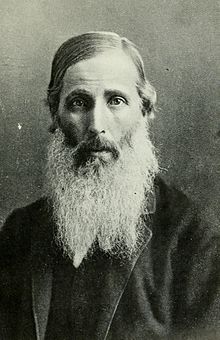
Back هنري سيدجويك Arabic هنرى سيدجويك ARZ Henry Sidgwick Catalan Henry Sidgwick Czech Henry Sidgwick German Henry Sidgwick Esperanto Henry Sidgwick Spanish Henry Sidgwick Estonian هنری سیجویک Persian Henry Sidgwick Finnish
Henry Sidgwick | |
|---|---|
 Sidgwick photographed by Elliott & Fry | |
| Born | 31 May 1838 |
| Died | 28 August 1900 (aged 62) Cambridge, Cambridgeshire, England |
| Nationality | English |
| Alma mater | Trinity College, Cambridge |
| Era | 19th-century philosophy |
| Region | Western philosophy |
| School | Utilitarianism |
| Institutions | University of Cambridge |
Main interests | Economics, ethics, political philosophy |
Notable ideas | Average and total utilitarianism, ethical hedonism, ethical intuitionism, paradox of hedonism |
| Political party | Liberal Unionist Party |
Henry Sidgwick (/ˈsɪdʒwɪk/; 31 May 1838 – 28 August 1900) was a British utilitarian philosopher and economist and is best known in philosophy for his utilitarian treatise The Methods of Ethics. His work in economics has also had a lasting influence.[1] He was the Knightbridge Professor of Moral Philosophy at the University of Cambridge from 1883 until his death.[2] He was one of the founders and first president of the Society for Psychical Research and a member of the Metaphysical Society and promoted the higher education of women.[3] In 1875, with Millicent Garrett Fawcett, he co-founded Newnham College, a women-only constituent college of the University of Cambridge. It was the second Cambridge college to admit women, after Girton College. In 1856, Sidgwick joined the Cambridge Apostles intellectual secret society.
- ^ Bryce 1903, pp. 327–342.
- ^ Schultz 2009.
- ^ Chisholm 1911.